Halfway through my rewatch of Jadu Tona (Black Magic, 1977), I said to my cat, who was also most definitely watching it with me since it has a kitty on some of its promotional material and was not just curled up on the sofa for no other reason, “This movie is UNHINGED.” A few scenes later, I recanted: “Huh. Actually, this movie is also quite…hinged.”
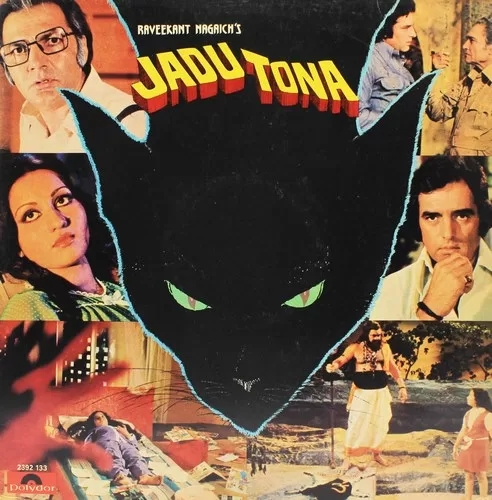
This film first came on my radar in discussions of Indian remakes of foreign films, when it is put forward as a remake of The Exorcist. No matter what the film’s title sequence tells you, the real star is the child actor Baby Pinky (of which there are two in Bollywood, so if you, understandably, go searching for her filmography, be careful). She plays Harsha, a young girl who is possessed by an evil spirit named Panalal after a visit to her family’s ancestral village. We’ll get to Panalal’s whole deal in a bit. Her father, Amirchand (Prem Chopra) and older sister Varsha (Reena Roy, last seen on the Gutter as a snake lady in Nagin) look on in despair as Harsha does the usual possessed-child things like vomit, get super strength, and cackle in a voice clearly not her own.
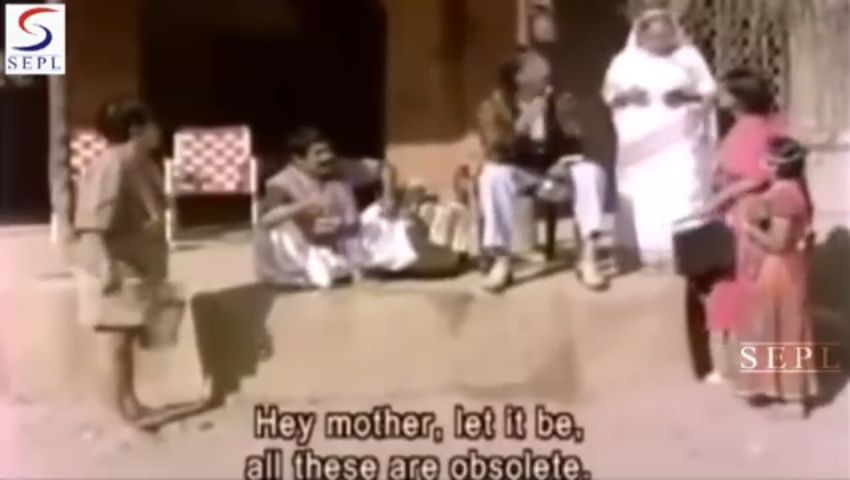

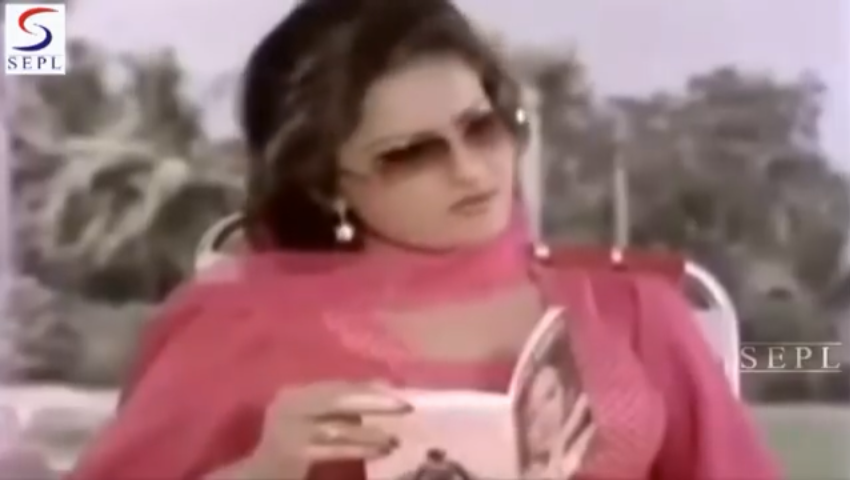



Amirchand’s mother (Leela Mishra) wants to call in holy man Bajrangi (Prem Nath), but the more modern- and urban-minded Amirchand and Varsha prefer to talk to doctors. They eventually wind up in the care of a psychiatrist, Kailash (Feroz Khan, last seen on the Gutter in his adaptation of The Godfather). After Panalal-as-Harsha kills someone in a public park, we are introduced to our requisite police officer, who, for probably “comic relief” reasons with which I firmly disagree, is named Inspector Jolly Goodman (yes, really), played by Ashok Kumar. The rest is more or less investigatory, as everyone tries to figure out what’s going on and how to protect Harsha from it, peppered by romantical moments between Varsha and Kailash and multiple other comedy moments so pointless I refuse to discuss them further.
Granted I have not seen The Exorcist in years because I am a scaredy cat, but if I remember right, it explores contemporary American reactions to the upheaval of 1960s social movements, with a modern, non-nuclear family headed by a woman needing rescue from an ancient, wild force by representatives of a very patriarchal institution. Jadu Tona is similarly interested in modern vs traditional, but it’s more focused on ways of knowing and understanding the world. The film opens with a dedication: “for those who believe in god and universally accepted creation, known or unknown.” (The fact that characters disagree without being discredited means that the things are not universally accepted, but ok. ¯\_(ツ)_/¯ ) It continues with authoritative narration. “This cosmos, which is seamless, is a locked treasure of countless secrets. Now humans know all about the moon, and the planet Mars is within their reach. But a human is still unsuccessful in knowing all the secrets of nature and life…. The truth is not just what we can see. The things which we can’t see are also true…. This story rests in the void between today’s progress and the old traditions. Black magic!“
The illustrations under these proclamations give this Gen X baby some severe Cosmos meets Chariot of the Gods vibes. They also do a lot of work that the rest of the script never chooses to follow up on. The juicy ideas laid out in this opening are never revisited in any depth, which is a pity, but at least they’re here.
Panalal is not something as vast and uncontrolled as The Exorcist’s devil. He’s just a recently murdered man whose business partners kill him for his share of wealth. The presence of the entire ancestral village in the exorcism in the film’s final scenes makes me think that whatever the bad guys’ crimes were, their main sin is being too individualistic and claiming too much wealth for themselves: the community is more deserving than the specific few. The subtitles don’t say that they’re a criminal gang, but that would make sense to me based on the many 1970s Hindi films I’ve seen and serve as a nice indictment of smuggling or whatever anti-authority activity has led to ill-gotten gains. Having them just be corporate raider types also fits nicely into the more socialist slant of some films of the time. Either way, they are greedy, and that deserves to be punished!
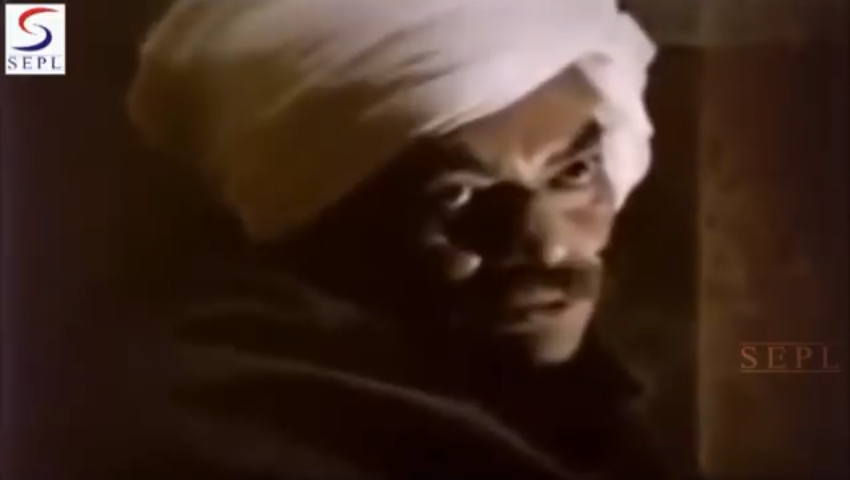

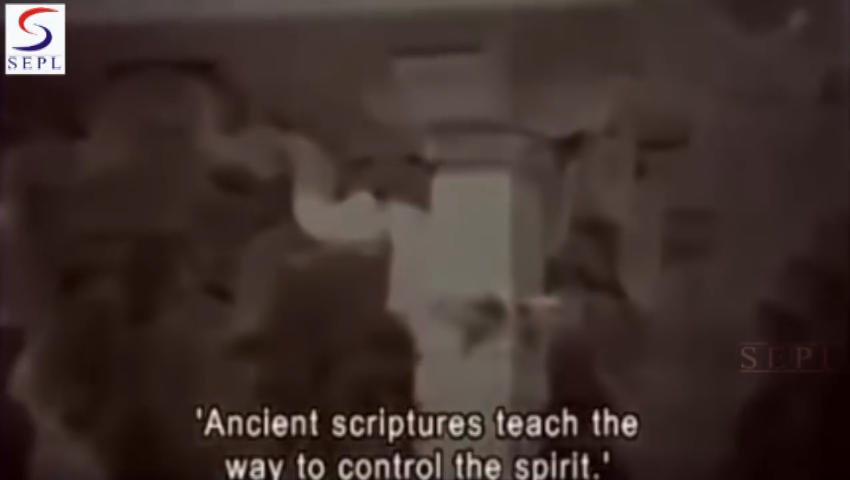
I don’t want spoil exactly how the film resolves, but I will say that I wish Kailash and Goodman had more in-depth conversations about their contrasting approaches to integrating the evidence in Harsha’s case into full explanations of what happened. I don’t think I’ve ever seen a Hindi film in which a police officer repeatedly insists that clues in a murder case actually point to ghostly perpetrators rather than to humans, and coupling this mindset with the major comic relief character is a fascinating choice.



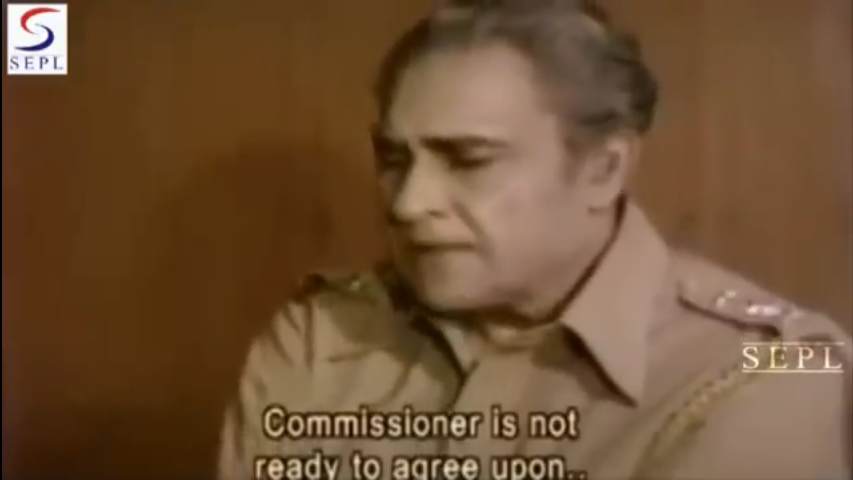

This brings me to the film’s one significant flaw, in my opinion: the casting. Baby Pinky is unexpectedly compelling, an impressive feat in an industry where most kids who get to play anything other than traumatized victims in flashbacks that set up a hero’s revenge arc end up being cloying brats. It’s the adults who are the problem. Most of them seem out of place at best and half-assed at worst. Ashok Kumar, Feroz Khan, and Prem Chopra are absolute stars, but their combination here is so weird. If you’re not already familiar with them, just know that Kumar is a vintage superstar of a mainly heroic and admirable bent who by this time was doing lots of wise-but-kindly avuncular roles, Khan is Bollywood’s swagger-iest Telly Savalas slash cowboy, and Chopra is best known for playing villains across decades of films. I think they were miscast: Kumar makes little sense as a ghost-chasing comedy uncle, Khan is not remotely believable as a doctor, and Chopra is lost as a scared father.
I can’t think of an artistic reason for any of these three actors to be in these particular roles; maybe it was just financial, hoping that having them play against type would tempt audiences into the cinema halls? In this film none is bringing his A game, and, in combination in this specific setting, their energies collide and distract. Reena Roy is an actor I always enjoy, if for her supremely fabulous 70s part kaleidoscope, part disco, part Evil Knievel styling, but she has nothing interesting to do in this film. Such is often the case for even the most divine divas in Bollywood, but I lament it every time. Varsha is a city-dwelling modern woman with no interest in her grandmother’s traditions, but like her father also fears for Harsha and wants to protect her. She and Kailash are a cute enough couple, especially in their very 70s wardrobes (perhaps thanks to the legendary costume designer Bhanu Athaiya) and in a creative song that has him singing into a mirror where he sees her image, but I think the actors’ hearts weren’t in the romance track, so neither was mine.
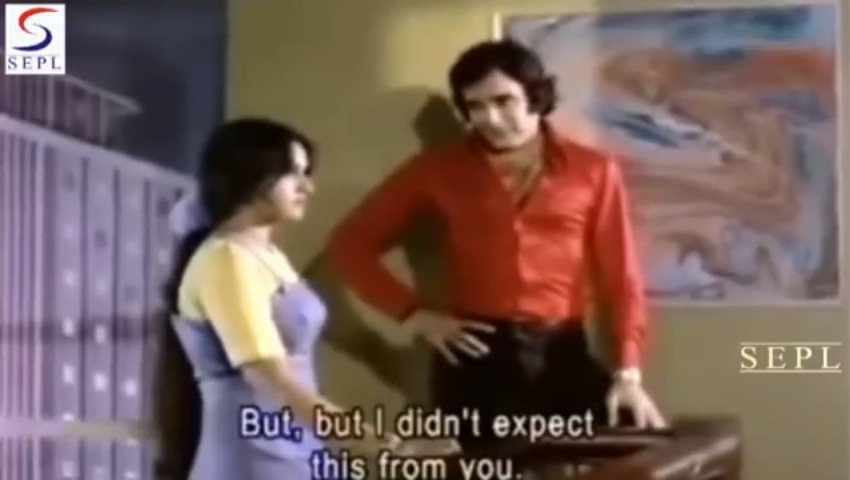
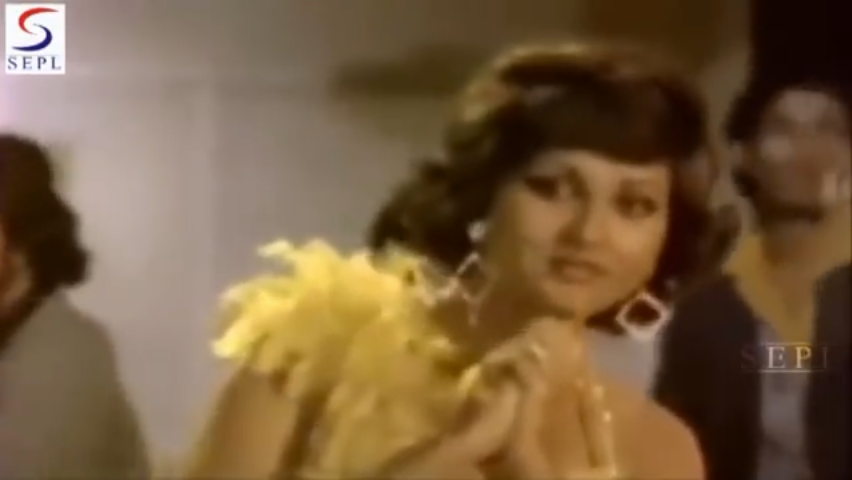

My heart IS very much in the filmography of director Ravikant Nagaich, so I have decided that Jadu Tona’s shifts in narrative tone from straightforward, almost ham-handed statements about “Science says X while belief says Y” to the scenes of possession with wild flashing lights and visually distorted wide shots of Harsha frantically rolling her eyes and furniture flying around the room are a clever parallel to the possession itself…and maybe even to the (limited) exploration of modern science in its controlled, clinical offices vs traditional belief in its rural, outdoors rituals.


Nagaich’s films that I’ve seen, like Hindi cinema’s first spy film Farz, share the power of more energetic leading men. As good as Baby Pinky’s Harsha is as the interesting center of the film, she cannot completely make me ignore the male authority figures who are trying to intervene and control her situation. Unfortunately they are just not up to the task here. It’s especially disappointing since Khan and Kumar are very charismatic, but somehow here Kumar can’t bring the script’s shoehorned jokes into line and Khan just doesn’t convey medical expertise. It’s really, really saying something that Khan can’t sell this to me, because I love him in everything I’ve seen, even when he’s not the most logical choice for a part. The energy here is all from Baby Pinky and whoever did Harsha’s possession effects (“cine effects” by Jayaram Reddy, perhaps?), which get more dramatic with each incidence, culminating in the very satisfying finale as Bajrangi battles Panalal for Harsha’s body, mind, and spirit.
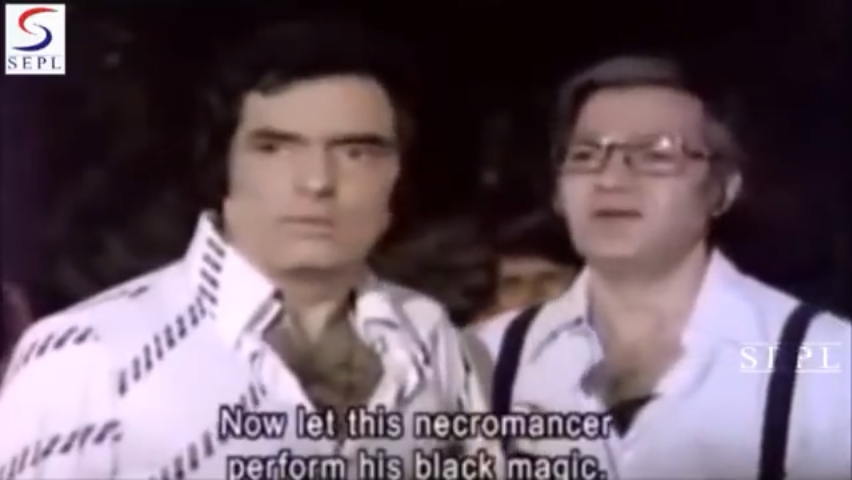

Jadu Tona is available with English subtitles but in an absolutely wretched print on Youtube. https://www.youtube.com/watch?v=WtDTHxf8Zx0
~~~
Beth Watkins will *not* be battling Panalal. Thank you.
Categories: Screen




